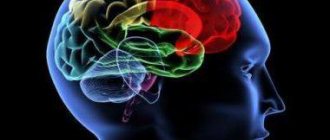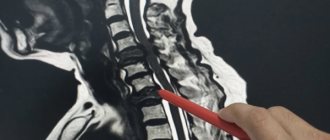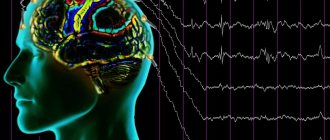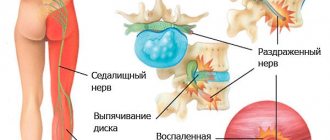Causes and manifestations of neuroses
The cause of the development of disorders is external or internal conflicts, psycho-emotional stress, or the influence of factors that provoke psychological trauma. The clinical picture is distinguished by obsessive, asthenic or hysterical manifestations. In addition, the patient experiences a transient decline in cognitive abilities and physical performance. People whose psyche is unstable are more susceptible to this pathology. Treatment of physiological manifestations of neurosis is mainly medicinal. In general, these disorders are best treated in a comprehensive manner (with the participation of an experienced psychotherapist).
The main groups of drugs for the drug treatment of neuroses:
- tranquilizers;
- antidepressants;
- nootropics;
- sedative herbal medicines.
Symptoms of neurosis
Neuroses are most often classified into three forms: neurasthenia, hysteria and obsessive-compulsive neurosis.
Neurasthenia is manifested by symptoms:
- asthenia (increased fatigue, decreased performance, memory impairment, absent-mindedness, impaired concentration, irritability, emotional instability, poor tolerance to anticipation),
- autonomic disorders (lability of pulse, blood pressure, sweating, headaches),
- sleep disorders.
Hysteria (conversion disorder) manifests itself:
- polymorphic functional mental, somatic and neurological disorders (that is, hysteria as a “chameleon” can manifest itself in the clinic of any disease, both mental and somatic),
- suggestibility of a person, reaching the ability to cause one or another symptom in oneself,
- demonstrativeness, the desire to attract the attention of others at any cost.
Obsessive-compulsive disorder is manifested by symptoms:
- obsessions (ideas, thoughts, images that come to mind again and again in a stereotypical form, and all efforts to get rid of them are unsuccessful),
- compulsions (stereotyped behaviors repeated over and over again that do not provide internal pleasure and do not lead to the completion of internally useful tasks).
There are 4 groups of obsessions:
- Concern about possible contamination
- Obsessive doubts that are accompanied by numerous checks
- Obsessive thoughts and ideas that involuntarily invade the client’s consciousness in the form of living visual images
- Obsessive slowness.
Neuroses without adequate treatment can lead to the development of persistent disability, social isolation, inability to enjoy in close relationships, avoidance of intimacy, in general to quite pronounced unhappiness in life and a decrease in the quality of life in general. Lead to the development of neurotic personality development - a protracted pathological process leading to persistent personality changes.
Treatment of neuroses with tranquilizer drugs
For the treatment of neurotic conditions, ataractic drugs or tranquilizers are used. This group of substances includes Mezapam, Elenium, Relanium, etc. In the early stages, they can provoke negative effects such as drowsiness, nausea and general weakness. Later, when treating neuroses with pills, these symptoms disappear.
Such medications promote muscle relaxation, have a hypnotic effect and reduce unmotivated feelings of anxiety. Attacks are divided into daytime and nighttime.
Treatment
Timely treatment of neuroses is one of the patient’s important tasks, since the sooner specialized therapy is prescribed, the higher the likelihood of completely getting rid of a nervous disorder and minimizing its impact on life. provides assistance to patients at different stages of the disease - even if you have just begun to notice some symptoms in yourself and your loved ones or the disease is in an advanced stage. Treatment of neuroses in Moscow involves medication and psychotherapy, as well as various calming practices designed to reduce stress - hypnosis, auto-training, etc.
Antidepressants are another medicine for the treatment of neuroses
These include, in particular, Anafranil, Melipramin and Pyrazidol. A number of antidepressants have been developed that have a stimulating effect. Such pharmacological agents, on the one hand, reduce feelings of melancholy and reduce weakness, but on the other hand, they increase feelings of anxiety and irritability.
Many patients are recommended to take antidepressants, mainly those with a sedative effect. This treatment of neuroses with medication reduces anxiety, but can cause drowsiness. In this case, only the attending physician who is well acquainted with the history and dynamics of the development of a psychogenic disorder can select the optimal drug.
Features in men
Of the four main types of neurosis: neurasthenia, hypochondria, obsessive-compulsive disorder and hysteria, the first three options are more often identified in the stronger sex. Hysterical neuroses in adult men are extremely rare.
The most common is neurasthenia, which develops against the background of prolonged mental, less often physical, overload, combined with nervous tension and negative emotions. This type of illness is typical for workaholics, managers and people whose work involves a high level of responsibility. The most vulnerable group are motivated men who suffer from a lack of communication skills and difficulties in adapting to changing conditions. Characteristic symptoms are:
- early onset of fatigue;
- a feeling of “empty head” or “head being compressed by a heavy helmet”;
- increased irritability;
- decreased efficiency of mental work, problems with concentration;
- tendency to self-condemnation and self-flagellation;
- loss of desires, inability to enjoy what previously gave pleasure;
- inability to fall asleep due to thoughts swirling in your head;
- lethargy and drowsiness during the daytime;
- decreased libido.
The clinical picture of neurasthenia partially resembles depression, but differs from it in maintaining a positive attitude towards life. A person wants to live and act, he just doesn’t have the strength to do so. If left untreated, the disorder gradually worsens. Distractibility and fatigue turn into total apathy, a feeling of physical and mental exhaustion.
In men with a balanced nervous system, the first signs of neurasthenia may paradoxically be an increase in the level of aggression, a tendency to extreme behavior and other features that, at first glance, indicate strength rather than weakness of the psyche and body. But such manifestations may reflect a gradual decrease in the level of control combined with the need for overcompensation.
Another common type of neurosis in men is hypochondria, which manifests itself as excessive concern about one’s health. Characterized by a tendency to look for diseases, study medical literature, and undergo numerous examinations. A typical feature is a refusal to acknowledge the psychological nature of the disorder.
The main symptom of OCD is obsessive thoughts, feelings and actions, which usually result in the formation of rituals. The most common fears include the fear of contracting a particular disease, doing something inappropriate in public, leaving a door unlocked, etc. Rituals have a calming meaning, “protecting” a person from future troubles. Understanding the irrationality of his behavior and the lack of connection between the threat and the actions taken, the patient still cannot refuse the ritual or change any of its components.
Treatment with nootropics
Many patients are shown the so-called. nootropics are drugs that improve microcirculation in the “brain pool” and improve the nutrition of cells of the central nervous system. Some of the most common nootropics are Piracetam and Phenibut. Most nootropics used improve mood and increase vitality. Side effects of these medications may include increased irritability and sleep disturbances. In some cases, these psychogenic disorders are an indication for starting to take weak antipsychotics, which include Eglonil and Sonapax.
Psychotherapeutic treatment
Psychotherapeutic treatment is selected and prescribed individually depending on the factors that caused stress and provoked the onset of neurosis. It is important to eliminate the risk of recurrence of the disease.
Our clinic’s specialists use the following psychotherapy methods:
- Existential
- as the main goal, changing a person’s life by leading him to comprehend his life, discover or revive his internal potential, actualize all necessary resources, and understand his true life needs. - Rational
– studying the patient’s personality, identifying the causes of the problem, helping in the formation of a behavior model aimed at strengthening new personal qualities. - Hypnotherapy.
- Family
– when problems are caused by a difficult family situation and painful relationships with relatives, children, or spouse. - Personality-oriented
- helps the patient get to know himself better, realize his desires, learn to cope with his reactions, suitable for people under more authoritative influence, accustomed to doing everything correctly, as others say, “as it should be.” - Cognitive and behavioral
- a practical approach for people who do not like to “dig” into the mind and involves working with facts, thoughts, actions and their consequences; therapy is based on logic.
Psychotherapeutic techniques and other methods of therapy
Along with the treatment of neuroses with medications, herbal medicine and physiotherapy have proven themselves well.
When developing a therapeutic regimen, it is important to take into account that disorders of this type have “double” symptoms – somatic (physiological) and psychological. Only an experienced neuropathologist, psychiatrist or neurologist can solve mental problems. In some cases, the involvement of acupuncturists and massage therapists is required. To get rid of mental problems, homeopathic treatment is often used, which involves the use of products based on natural raw materials. Moreover, biologically active substances are used in microdoses.
The text was checked by expert doctors: Head of the socio-psychological service of the Alkoklinik MC, psychologist Yu.P. Baranova, L.A. Serova, a psychiatrist-narcologist.
CAN'T FIND THE ANSWER?
Consult a specialist
Or call: +7 (495) 798-30-80
Call! We work around the clock!
Chronic neurosis
Chronic neurosis is a very common phenomenon in our practice. Now it is customary to call it a neurotic disorder, however, changing the terminology does not change the essence of the phenomenon. Chronic neurosis affects not only adults who live in an intense and constantly stressful rhythm and a catastrophic lack of time, but also children, the level of demands on whom increases from year to year.
The most common cause of chronic, protracted neurosis is stress. Thus, a constantly acting stressor (a source of stress, a stressful situation in which a person constantly finds himself) can cause this disorder. But, even if there were no stressful situations, simple overexertion, failure to maintain a balance between hard work and active forms of rest, as well as sleep and rest, can also lead to such difficult consequences.
Intrapersonal problems that seem insoluble, constant and intense mental work, an attempt to get out of a difficult situation and cope with it - all this can also become a source of neurosis, and if timely help is not provided, then chronic neurosis.
Symptomatically, neurosis is expressed both in the characteristics of a person’s psychological state and at the somatic level.
Symptoms of neurosis:
Many people mistakenly believe that for the successful treatment of neurosis or a neurotic disorder, a consultation with a neurologist is sufficient (despite the consonance of the words). High-quality therapy for neuroses is possible only if an integrated approach to treatment is followed, and, of course, preliminary diagnosis.
The diagnostic work of a doctor will help determine the true cause of the disorder, eliminate it, or work it out efficiently, and then relieve the patient of this illness. Neurotic disorders are completely reversible phenomena. But the speed (timeliness) of contacting specialists is important for their successful treatment. Neuroses can be accompanied by other types of disorders (phobias, panic attacks), and then a much larger list of problems has to be solved, which, of course, affects the duration of treatment.
Thus, neurosis can be cured forever provided that a competent psychiatrist or psychotherapist works on the problem, since a combination of pharmacological therapy (say, for severe anxiety) and psychotherapy may be needed. (The latter is mandatory, since only in this way can one learn to resist stressors, restore one’s own strength after exposure to adverse factors, and develop psychological self-defense skills).
| | Find out more about the treatment of neuroses in our clinic |
Diagnostics
Diagnosis and treatment are carried out by a psychotherapist. To study the history of life and illness, and identify existing symptoms, a confidential conversation is held. The doctor asks the patient about the situation in the family and at work, current experiences, changes in condition over time, the connection between the appearance of signs of neurosis and external circumstances.
Questionnaires and projective tests are used to establish personality characteristics and clarify the nature of the disorder. The specialist receives certain information by observing the patient’s behavior, movements and facial expressions. If necessary, instrumental and laboratory tests are prescribed to exclude organic pathology.









